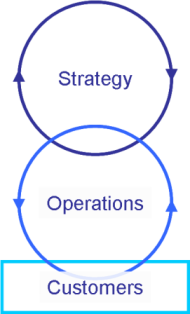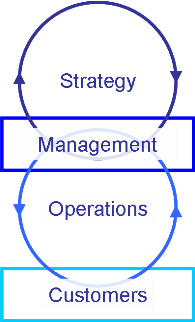When I am talking with managers about the benefits of doing 121s they usually resist the idea and offer a range of objections:
- I don’t need 121s – I speak with my staff ALL the time!
- I would never have enough time to meet with each member of staff for half an hour every week.
- What would we talk about if we met every week?
- My staff would feel that I was micro-managing them – they just want to get on with the job
- My staff aren’t interested in strategy or otherwise engaging – they just want to do a good job
I don’t need 121s – I speak with my staff ALL the time!
It is true that a lot of managers spend a lot of time talking with staff. The conversations are spontaneous, unplanned, unstructured, unfocused and often unproductive. They promote a conversation culture rather that is characterised by high levels of interruptions – ‘Sorry to disturb you but can an I just have a quick word with about….’ Managerial time is freely available and therefore barely valued. Prioritisation by staff is poor and managers are often diverted from more important tasks as they feel obliged to respond to staff requests for help. Such managers usually have gaping holes in their performance when it comes to areas such as innovation, creativity, strategy and planning as they are too busy ‘mole-whacking’.
I would never have enough time to meet with each member of staff for half an hour every week
This translates direclty to ‘I have more important things to do than work in planned structured way with staff on a 121 basis’. It also translates to ‘People are not our most important asset and therefore I can afford to neglect them’.
Company costs per full-time employee in the UK now stand at £97,122. Such costs typically include:
- pay and bonuses,
- employers’ national insurance payments and pension contributions,
- office accommodation costs, and
- central costs, which incorporate elements such as HR and finance departments.
What other assets do you manage that cost this much to keep in the game – that, if they feel disgruntled, devalued or otherwise fed up can literally just get up and walk out the door? You really think that investing 30 minutes a week in them to keep them engaged, challenged, informed, recognised and valued won’t give you a great return on your investment. NB See above – structured 121 time is very different to ‘talking with them all of the time’.
What would we talk about if we met every week?
This one comes from managers where the culture is about delivering this year what we delivered last year but incrementally better. No-one is thinking or exploring, looking for better ways to skin the cat/butter the parsnips etc . No one is learning stuff every week that is relevant to improving the product, service or processes of work. Expect people to make things better every week and ask them what they have done every week to contribute to making things better. It also comes from managers that have ‘values on the website’ but don’t see their role in reinforcing them in practice on a weekly basis.
My staff would feel that I was micro-managing them
This comes from managers who don’t understand that most people want to have a connection to work. They want to be engaged and to matter. They want to have a chance to give their best. They don’t want to be alienated and cynical. Although if you don’t work with them frequently on a 121 basis they will be!
They also don’t understand the difference between dabbling in the detail (micro-managing) and unleashing potential (the number 1 priority of the high performance manager).
My staff aren’t interested in strategy or otherwise engaging
This comes from managers who have tried to engage staff but failed. Therefore in order to maintain their own self – image (I am a good manager) they have to believe that staff are not interested. Do you REALLY have staff who aren’t interested in the future of their employer and how they can help to make it better?
So what is your excuse?


